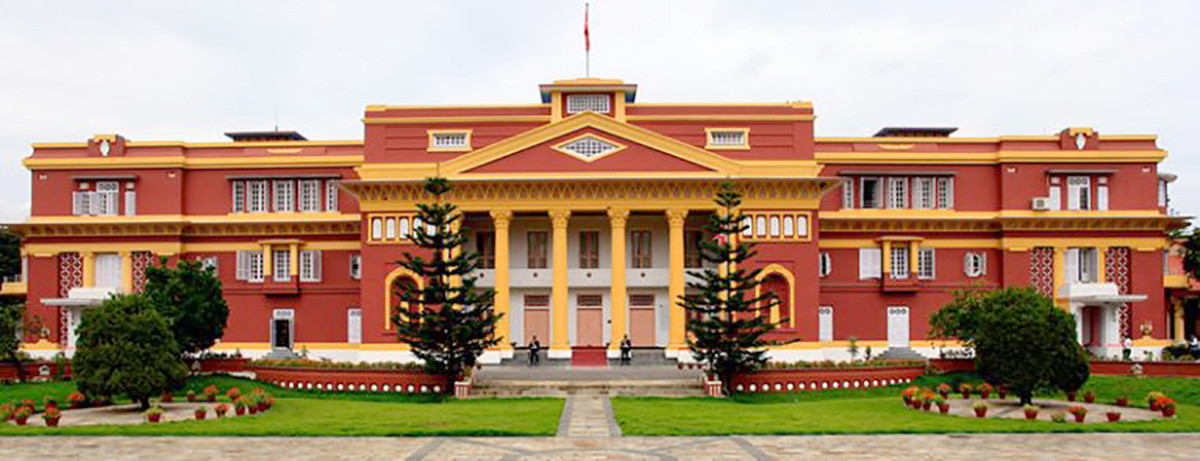There is dispute about presidential election due to the contradictory provisions in the Constitution and law.
Article 63(1) of the Constitution states ‘The term of office of the President shall be five years from the date on which he or she is elected.’
Article 63(2) of the Constitution then states ‘The President whose term of office under clause (1) has expired shall continue to discharge the functions under this Constitution until another elected President assumes his or her office.’
The act about president’s election, meanwhile, states that date of election should be set in a way that election is held a month before the term of predecessor expires.
The term of President Bidya Devi Bhandari expires on March 13. If her successor were elected a month before that there would be two active presidents as the Article 63(1) specifies that the term of president starts from the date on which he or she is elected.
The term of successive presidents, in this way, would be shortened by one month each and the successive elections would have to be brought one month early after each term if the provision in the act were followed.
The meeting of NC Office-bearers on Monday has called for timely resolution of the legal problem. “We, therefore, say that the presidential election should be held in time even by resolving this problem,” NC Chief Whip Ramesh Lekhak told Setopati.
The Election Commission has also been consulting constitutional experts about the issue. Sources at the Election Commission claimed that it had already informed top political leaders about the legal problem but the leaders did not pay attention.
“This problem has arisen as they ignored our warning at that time. The political parties are making their own interpretations. This dispute has created problems in fixing the date for presidential election,” an Election Commission source told Setopati. “We are paying attention to ensure that there is no problem of two serving presidents in the country. We are initiating discussion to hold presidential election a week before March 13 and get the elected candidate sworn in.”
But doing so would violate the act related to presidential election that specifies that election should be held a month before the term of predecessor expires.
There was similar legal dispute regarding the last local election with parties making different interpretations of Article 225 of the Constitution and clause 3 of the Local Election Act.
Article 225 states that the term of rural assembly and municipal assembly will be five years, and election for the next rural assembly and municipal assembly should be held within six months of end of that term.
Clause 3 of the Local Election Act, on the other hand, states that members will be elected two months before the term of rural assembly and municipal assembly expires.
The previous local election in 2017 was held in three different stages with the first held on May 14, the second on June 28 and the last on September 18. The term of all elected local representatives had to be counted to have started from May 14, 2017, meaning that those elected in the second and third stages would have served less than five years.
The then main opposition CPN-UML had accused the ruling coalition including Nepali Congress (NC) and CPN (Maoist Center) of trying to postpone the local election to beyond September 2022 citing the legal dispute.
The issue was even taken to the Supreme Court (SC) but the coalition eventually held the election on May 13, 2022. And the SC did not take any decision in the case.

